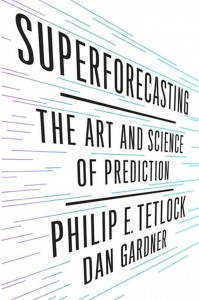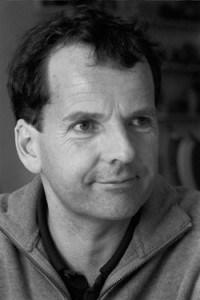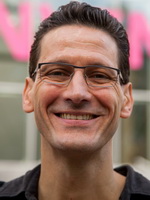Phillip Tetlock and Dan Gardner have a new book out – Superforecasting. The book gives an entertaining overview of Tetlock’s work on forecasting, including a large scale forecasting tournament – the good judgment project – in which over 2800 laypeople were asked (across years) to make real-world predictions, such as “will any country withdraw from the Euro zone in the next 3 months?”. I found it particularly interesting that Tetlock and Gardner pitch these efforts as an attempt to introduce evidence-based decision making to policy, in a similar vein as evidence-based practices have taken hold in medicine and sports.
For those University of Basel students interested in the topic, there will be a seminar on forecasting taught by Renato Frey next semester.
Erfolgreiches Vorhersagen: Grundprinzipien, die Rolle der Psychologie, und Anwendungstechniken
Die Zukunft geht mit Unsicherheit einher – deshalb interessieren sich Menschen brennend für die verschiedensten Vorhersagen: Welchen Krankheitsverlauf prognostiziert ein medizinisches Testresultat? Wird eine Finanzkrise eintreten oder nicht? Nicht selten werden wir auch selbst zu „Propheten”, wie zum Beispiel wenn es darum geht, den nächsten Fussballweltmeister vorherzusagen. Vorhersagen sind allerdings nicht nur faszinierend, sondern oft auch komplex und schwierig. Auf welchen Informationen sollten unsere Vorhersagen im Idealfall basieren, und auf welchen Informationen basieren sie tatsächlich? Wie gut sind die Vorhersagen von Menschen vs. Maschinen? In diesem Seminar behandeln wir die Grundprinzipien und die Psychologie von erfolgreichem Vorhersagen und untersuchen insbesondere, wie gut diverse Vorhersagetechniken unter verschiedenen Bedingungen funktionieren.
Tuesday, 10.15-11.45 Missionsstrasse 64a (ehem. Nebenhaus). Link to Vorlesungsverzeichnis.


